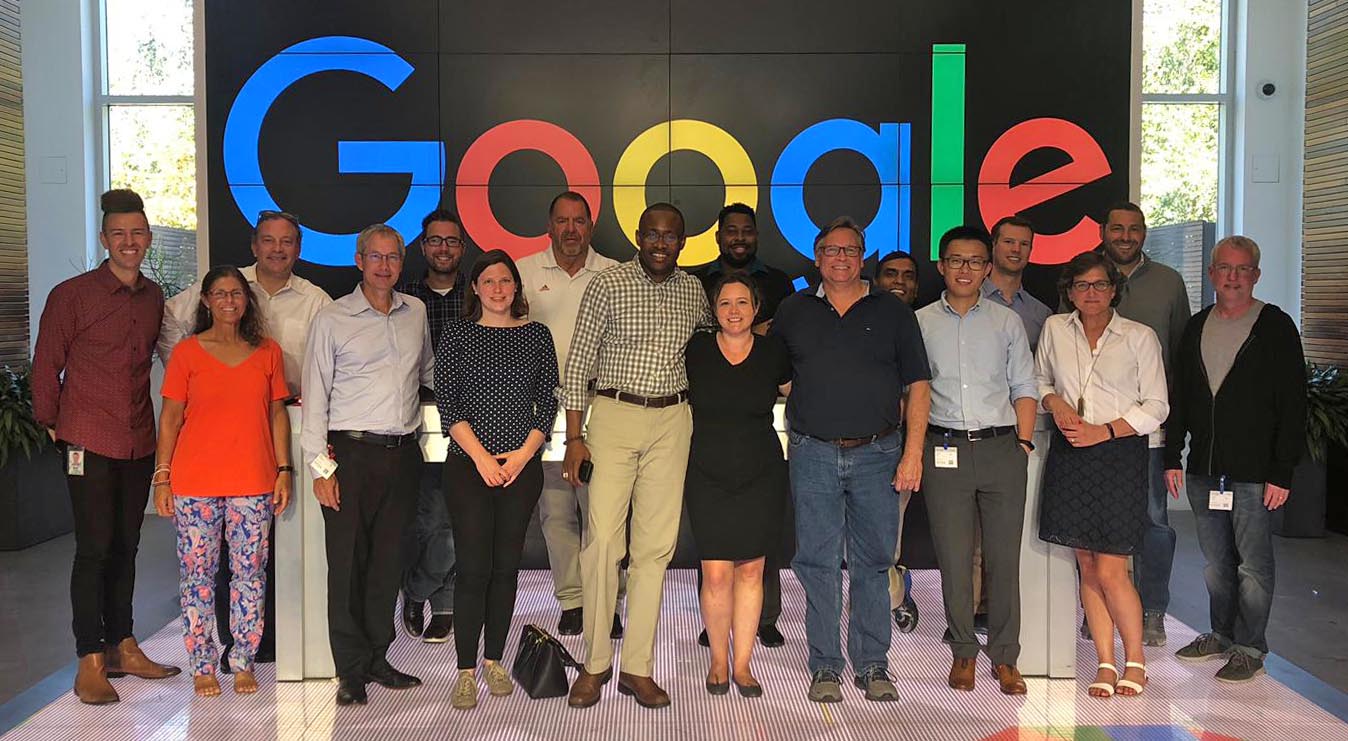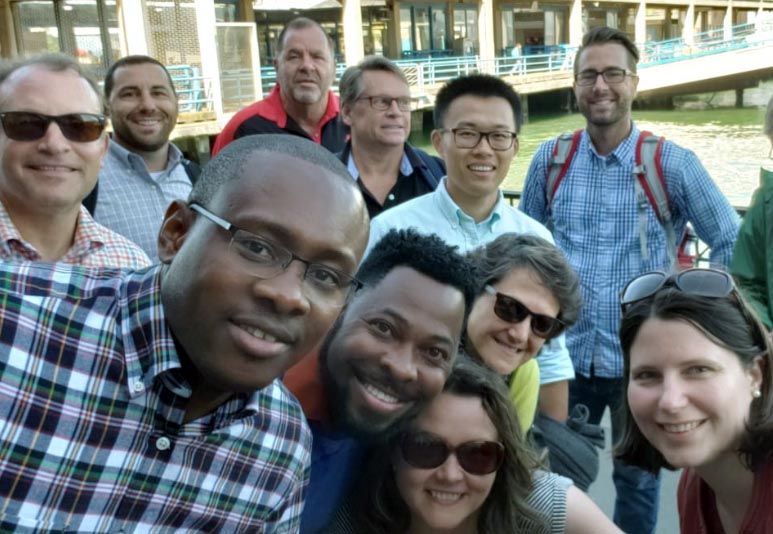Faculty visit to San Francisco generates knowledge, experiences


Farmer School faculty will go to great lengths (and distances) to stay ahead of the curve to ensure that our students are beyond ready to lead organizations in industries that may not yet exist. As part of that process, more than a dozen Farmer School faculty traveled to San Francisco in July to talk with the people who built and grow the technology companies located there.
“I am firmly of the belief that we as educators need to ‘keep it real’ -- we need to be able to connect what we teach in the classroom to what the students will face when they start working,” associate professor of marketing Sanjay Puligadda noted. “The value in the education we provide comes not only from the theoretical principles we discuss in the classroom but, more importantly, from connecting theory to practice. To that end, trips like these are extremely important.”
“I'm getting ready to launch an initiative to help our students work more effectively in teams. And that is based on some work that was done at Google,” management professor Megan Gerhardt said. “We actually got to meet a former student of mine, Mike Emling, who has worked at Google since he graduated and has been doing some work with their team model,” Gerhardt said. “So I was able to talk with him, and I'm going to try to talk him into coming back to campus to talk with our students.”
“A lot of my research is on tech companies and the business models that have stemmed from internet use and widespread mobile use,” economics assistant professor Mark Tremblay explained. “I wanted to meet with people, talk to them, hear about what they're doing, and get more examples to bring into the classroom.”
The faculty group visited nearly a dozen companies, big and small, such as Twilio, Airbnb, Scoop, Ripple, Google, and Unity. “I have scraped data on Airbnb and I have several research projects looking at how different policies have impacted Airbnb,” Tremblay pointed out. “We met with someone who's a Miami grad who worked within the policy group there. So I got to ask him a lot of like specific questions to my research. He had information that I wasn't aware of that'll help certain projects. So that was especially awesome.”
Management professor Rocky Newman said a company that really piqued his interest was Flex, an electronics manufacturing and supply chain management services firm that works with many startups to bring products to market. “How do you incubate, how do you develop, how do you grow, how do you mature some of those ideas to the point where they are ready for primetime?” he wondered. “The composite seem to be a really cool merger of a lot of things that come before those products and ideas and things are developed and ready for mass production.”
Newman said that in a world of remote communication and education, he was surprised by how prized in-person communication was at the companies they visited. “What they do in terms of developing new ideas, starting new companies, and developing ventures vastly depended on the face to face interaction of the people involved,” he recalled. “You just had to be there, you had to be there in San Francisco and meeting with all the people that you dealt with on a face-to-face basis. And yet the conundrum is that the vast majority of what they're talking about, especially in the tech world, I had always been led to believe was making the whole idea of physical proximity and location almost a moot point.”
“San Francisco has a lot of concentrated energy. There's just so many businesses there, it’s an entirely different ecosystem,” Gerhardt said. “It’s a very different mindset in terms of the hustle that people have. “It all starts with an idea and then it's all about getting the right people on board, the right investments.”
The faculty met several Farmer School alumni at the companies, including some of their own previous students. “The Miami University alumni that we visited demonstrated confidence, grit and adaptive skills that is needed in a rapidly disruptive ecosystem like San Francisco,” information systems and analytics assistant professor Joseph Nwankpa said.


